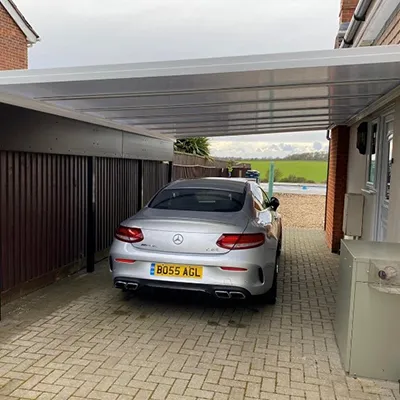Aluminium Windows in the UK: The Ultimate Resource for Style, Efficiency, and Durability
Aluminium Windows in the UK: The Ultimate Resource for Style, Efficiency, and Durability
When combining sleek aesthetics with robust functionality, aluminium windows have become the crowning glory of contemporary architecture. Their rising popularity in the UK is no coincidence—thanks to their unmatched durability, energy efficiency, and sophisticated appeal, these windows offer the perfect balance of form and function. Whether it’s a stylish urban home, a cosy countryside cottage, or a cutting-edge office space, aluminium windows complement diverse architectural styles while standing up to the unpredictable British weather.
Beyond their physical characteristics, they also tick the sustainability box, as aluminium is a recyclable material that aligns with the UK’s push for greener construction solutions. They offer homeowners and businesses an opportunity to embrace modernity without compromising on environmental responsibility.
We will dive deep into the world of aluminium windows, exploring their benefits, types, cost considerations, and much more. Whether you’re renovating your existing property or planning a new build, this comprehensive guide will arm you with everything you need to make informed choices about incorporating them into your space.

What Are Aluminium Windows? A Blend of Elegance and Functionality
Aluminium windows are crafted from aluminium frames, a lightweight yet incredibly strong material known for its versatility and resilience. The frames are typically manufactured using extruded aluminium profiles, which are treated to enhance durability and weather resistance. These windows are often paired with advanced glazing options, such as double or triple glazing, to maximise thermal efficiency and acoustic insulation.
One key of their key features is their slim profiles, allowing for larger panes of glass that invite natural light into a space—perfect for brightening up homes or workplaces. They come in a wide range of designs, finishes, and colours, ensuring adaptability to various architectural styles.
When compared to uPVC windows, aluminium offers superior strength and a sleeker appearance. Unlike uPVC, which is more prone to expansion and contraction due to temperature fluctuations, aluminium remains stable, reducing the risk of warping or cracking over time. In contrast to wooden frames, aluminium is far easier to maintain and boasts better resistance to rot, pests, and moisture, making it an ideal choice for long-term use.
Aluminium windows stand out as a modern, durable, and energy-efficient alternative, combining beauty with practicality—a worthy investment for any UK property owner.
Advantages of Aluminium Windows: A Winning Combination of Strength and Style
Aluminium windows have gained immense popularity across the UK, thanks to their remarkable durability, sleek aesthetic, and energy-saving properties. Whether installed in a modern high-rise or a charming suburban home, these windows offer a host of advantages that make them a standout choice.
- Durability and Strength:One of aluminium’s greatest strengths—quite literally—is its incredible durability. Unlike wood, which can rot, or uPVC, which can warp over time, aluminium is resistant to harsh weather conditions, corrosion, and wear. This makes it particularly well-suited to the UK’s unpredictable climate, from coastal winds to heavy rain. Additionally, its innate strength allows for slim frames that support large glass panels, providing uninterrupted views without compromising structural integrity.
- Energy Efficiency:Gone are the days when these windows were associated with poor insulation. Thanks to advancements such as thermal breaks—materials inserted between aluminium sections to reduce heat transfer—these windows now meet high energy efficiency standards. They help retain indoor warmth during colder months while preventing excess heat build-up in the summer, leading to reduced energy consumption and lower utility bills. When paired with double or triple glazing, aluminium windows can achieve excellent U-values, meeting the UK’s strict energy regulations.
- Design and Aesthetic Appeal:For homeowners and architects looking to make a statement, aluminium windows offer unmatched design flexibility. Their slim profiles create a contemporary and elegant look, allowing more natural light to flood interiors. Available in a vast range of colours and finishes—including powder-coated options for added durability—these windows can be customised to complement both modern and traditional architecture. From casement to sliding and bi-fold styles, aluminium windows effortlessly adapt to any setting.
- Sustainability :Aluminium is one of the most sustainable building materials, as it is 100% recyclable without losing quality. Many UK manufacturers use recycled aluminium in their production, reducing environmental impact and promoting a circular economy. Choosing aluminium windows is not just an investment in a property’s future but also a step towards eco-friendly living.
- Low Maintenance :Unlike timber windows that require regular painting and sealing, aluminium windows demand minimal upkeep. A simple wipe-down with soapy water is enough to keep them looking pristine, saving homeowners time and effort. Their resistance to rust, fading, and warping further ensures long-lasting performance with little maintenance needed.Aluminium windows provide the perfect mix of style, efficiency, and resilience—making them a top-tier choice for homeowners across the UK. Whether prioritising aesthetics, practicality, or sustainability, these windows tick all the right boxes!
Disadvantages of Aluminium Windows: Factors to Consider
While aluminium windows offer impressive benefits, they come with a few drawbacks that homeowners should weigh before making a decision.
-
- Higher Initial Cost:One of the primary concerns for buyers is the upfront cos. Compared to uPVC and timber alternatives, aluminium tends to be more expensive due to the manufacturing process and advanced engineering involved. However, this higher initial investment is often offset by their longevity and durability, as they require fewer replacements or repairs over time.
- Conductivity Concerns:Aluminium is a highly conductive material, meaning it can transfer heat easily. In earlier designs, this led to issues with thermal efficiency, causing heat loss during colder months. However, modern aluminium windows now feature thermal breaks—insulating materials within the frame that prevent heat transfer—significantly improving energy efficiency and meeting UK building regulations. When combined with double or triple glazing, they can perform just as well as other insulating&nbso;materials.
- Limited Suitability for Period Properties Despite their sleek and contemporary appeal, aluminium windows are not always the best fit for older, traditional homes. Many period properties favour timber frames to maintain historical authenticity, as aluminium may appear too modern against classic architectural styles. That said, some manufacturers offer aluminium frames that replicate the appearance of traditional designs, providing a solution for homeowners who want durability without sacrificing aesthetics.While aluminium windows may have some limitations, design and thermal technology innovations continue to make them a competitive option for UK homeowners. Considering both their strengths and drawbacks will help ensure the right choice for each property.
Types of Aluminium Windows: Finding the Perfect Fit
Aluminium windows come in a variety of styles, each catering to different aesthetic preferences and functional needs. Whether you’re looking for a classic casement window or a space-saving sliding option, aluminium provides a versatile solution for modern and traditional homes alike.
- Casement Windows:Casement windows are among the most popular choices in the UK, offering a simple yet effective design. Hinged at the side and opening outward, these windows provide excellent ventilation and an unobstructed view. Their sleek aluminium frames enhance durability while maintaining a lightweight and stylish finish, making them ideal for both residential and commercial properties.
- Sliding Windows:Perfect for contemporary homes, sliding aluminium windows feature panels that glide horizontally along a track. These windows are particularly beneficial in spaces where outward-opening windows may not be practical, such as balconies or tight urban settings. The slim frames maximise natural light while delivering a streamlined, modern appearance.



- Bi-Fold Windows:For homeowners seeking a seamless indoor-outdoor transition, bi-fold aluminium windows are a standout choice. These windows fold neatly to the side, creating an open and airy environment that is perfect for entertaining or enjoying garden views. Their sturdy aluminium frames ensure smooth operation while complementing modern architectural designs.
- Tilt-and-Turn Windows:Tilt-and-turn aluminium windows offer versatility, allowing users to tilt the window inwards for ventilation or open it fully for cleaning and access. This dual functionality makes them particularly practical for high-rise buildings and homes where easy maintenance is essential.
- Customised Aluminium Window DesignsBeyond standard styles, aluminium windows can be tailored to unique architectural needs. Whether it’s oversized picture windows, shaped frames, or coloured finishes, aluminium allows for endless customisation without compromising strength or efficiency.With such a diverse range of options, aluminium windows cater to every preference, offering the perfect combination of durability, style, and practicality.
Energy Efficiency and Thermal Performance: Keeping Homes Comfortable
Aluminium windows have evolved significantly in terms of energy efficiency, making them a viable choice for homeowners looking to reduce heat loss and improve indoor comfort.
-
- Thermal Breaks: The Game ChangerOne of the biggest innovations in aluminium window technology is the introduction of thermal breaks. These are insulating barriers placed between the inner and outer sections of the aluminium frame, drastically reducing the material’s natural conductivity. Without a thermal break, aluminium frames would transfer heat easily, leading to inefficient insulation. By integrating these breaks, modern aluminium windows help retain warmth during winter while keeping interiors cooler in summer, ultimately lowering energy bills.
- Understanding U-ValuesEnergy efficiency in windows is often measured using U-values, which indicate how much heat is lost through the window. A lower U-value means better insulation. In the UK, double-glazed aluminium windows typically achieve U-values between 1.2 to 1.8 W/m²K, depending on the glazing and frame construction. Some high-performance triple-glazed aluminium windows can reach even lower values, competing with uPVC and timber alternatives in thermal performance.
- Compliance with UK Energy RegulationsTo promote sustainability and energy efficiency, UK building regulations set strict requirements for window insulation. Newly installed aluminium windows must meet Part L of the Building Regulations, which specify a maximum allowable U-values to reduce carbon emissions. Many manufacturers ensure their aluminium windows comply with these regulations by incorporating advanced glazing technologies and thermal barriers.Thanks to these improvements, aluminium windows are no longer just a stylish option—they actively contribute to energy conservation, offering both aesthetic appeal and practical efficiency.
- Costs and Affordability: Investment vs. Long-Term SavingsThe price of aluminium windows varies depending on several factors, making them a premium choice for many UK homeowners. While they may have a higher upfront cost than some alternatives, their durability and energy efficiency often result in long-term savings.
- Factors Influencing CostSeveral elements impact the cost of aluminium windows, including:
- Frame Size & Design – Larger or more complex designs, such as bi-fold or sliding windows, tend to be pricier.
- Glazing Options – Double or triple glazing improves insulation but adds to the overall cost.
- Powder Coating & Custom Finishes – Standard aluminium frames are more affordable, while bespoke colours and finishes can increase the price.
- Installation Fees – Professional fitting ensures longevity, and costs can vary depending on the supplier and location.
- Price Comparison with Other Materials
Compared to uPVC, aluminium windows are typically 20-30% more expensive, primarily due to their stronger construction and longer lifespan. Timber frames, while sometimes comparable in price, require ongoing maintenance, making aluminium a more cost-effective option over time. - Long-Term Value & Cost-Effectiveness
Despite the higher initial investment, aluminium windows often prove financially beneficial in the long run. Their durability means fewer replacements or repairs, and their energy efficiency can reduce heating bills. Additionally, aluminium’s resistance to weathering ensures that homeowners won’t need frequent upkeep, unlike timber, which requires repainting and sealing.
Maintenance and Lifespan: Keeping Aluminium Windows in Prime Condition
One of the standout features of aluminium windows is their low maintenance requirements, making them a practical choice for busy homeowners and businesses alike. Unlike timber frames, which require frequent repainting and sealing, aluminium windows demand only basic cleaning to retain their pristine appearance and functionality.
- Cleaning and Care:Maintaining aluminium windows is refreshingly simple. A quick wipe with a soft cloth and soapy water every few months is enough to prevent dirt build-up and maintain their polished finish. For tougher grime or coastal properties exposed to salt air, a mild detergent solution can help remove residue without damaging the frame. Regularly checking and lubricating moving parts, such as hinges and handles, ensures smooth operation and longevity.
- Expected Lifespan :Aluminium windows are built to last, with a typical lifespan ranging between 30 to 45 years, depending on environmental conditions and upkeep. Their resistance to rust, corrosion, and warping significantly extends their longevity compared to other materials like uPVC, which can degrade faster under extreme weather fluctuations.
- Addressing Common Issues:While aluminium windows are highly durable, occasional issues may arise, such as condensation between panes (usually due to seal failure) or difficulty in opening due to debris accumulation in tracks. Addressing these problems early—whether through resealing or cleaning mechanisms—can prevent further complications and keep the windows functioning efficiently.
Sustainability and Environmental Impact: A Greener Choice
Aluminium windows are a sustainable option for eco-conscious homeowners, thanks to the material’s recyclability and minimal environmental impact. Aluminium is 100% recyclable and can be reused indefinitely without losing quality, making it one of the most eco-friendly building materials available. In fact, the recycling process uses only 5% of the energy required for producing primary aluminium, significantly reducing its carbon footprint. Many UK manufacturers now incorporate recycled aluminium into their products, further supporting sustainability goals.
In addition to their recyclability, aluminium windows contribute to green building standards, such as those outlined by BREEAM (Building Research Establishment Environmental Assessment Method). Their energy-efficient designs, particularly when paired with thermal breaks and advanced glazing, help reduce energy consumption in homes, aligning with the UK’s efforts to lower emissions and promote sustainable construction.
Conclusion: A Smart Choice for Modern Homes
Aluminium windows have proven to be a versatile and forward-thinking option for UK homeowners. Their durability ensures they withstand the unpredictable British weather, while their energy efficiency—thanks to advancements like thermal breaks—helps reduce energy consumption and heating costs. With slim profiles and a variety of styles, aluminium windows offer aesthetic appeal that complements both modern and traditional properties. Furthermore, their sustainable qualities, including infinite recyclability, make them an environmentally responsible choice.
Whether you’re renovating your home or designing a new property, aluminium windows strike the perfect balance between style, functionality, and eco-friendliness. Their long lifespan and low maintenance requirements add further value, making them a wise investment for the future.
If you’re ready to explore how aluminium windows can transform your property, reach out to Style Superior Windows & Conservatories Ltd for expert advice and quality solutions on your aluminium windows’ needs. Visit our website to get started today!
Glossary of Terms
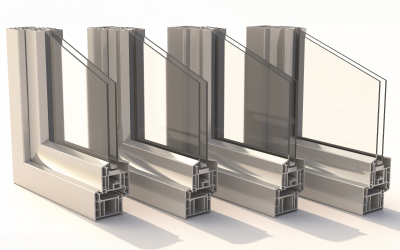
Thermal Breaks
Insulating barriers that are placed within aluminium frames to prevent heat transfer, enhancing energy efficiency.
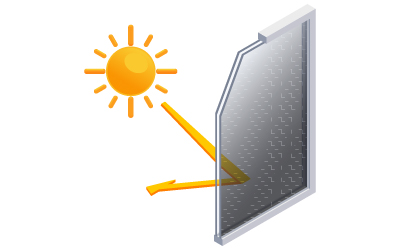
U-Value
A measurement of thermal performance in windows; lower U-values indicate better insulation and reduced heat loss.
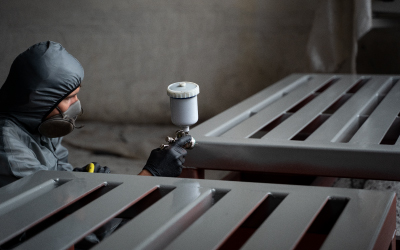
Powder Coating
A finishing process that applies a durable, coloured layer to aluminium frames, improving aesthetics and protection.
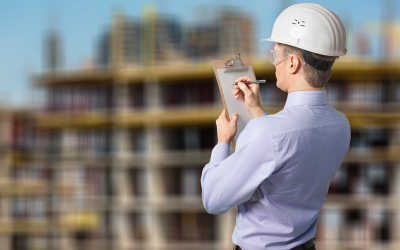
BREEAM (Building Research Establishment Environmental Assessment Method)
A UK-based standard for assessing the sustainability and environmental impact of building materials and designs.
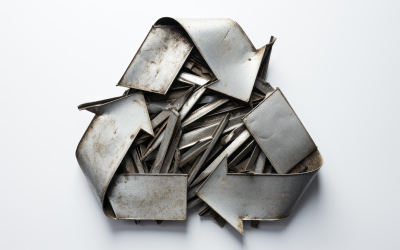
Recycling Aluminium
The process of reusing aluminium materials indefinitely without losing quality, reducing energy usage and waste.
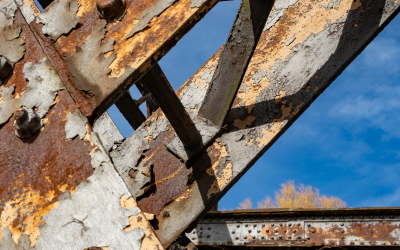
Corrosion
The gradual damage or deterioration of materials, such as metal, caused by environmental elements like moisture.
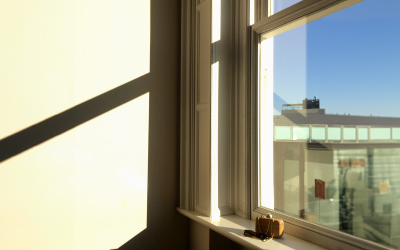
Part L (Building Regulations)
UK building regulation that sets standards for energy efficiency, including insulation and heat loss in windows.

Green Building Standards
Guidelines or certifications that promote environmentally friendly practices in construction and materials.



